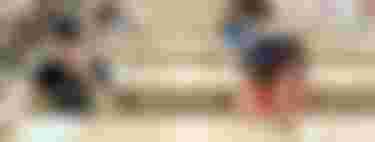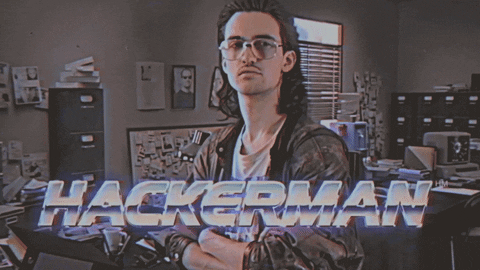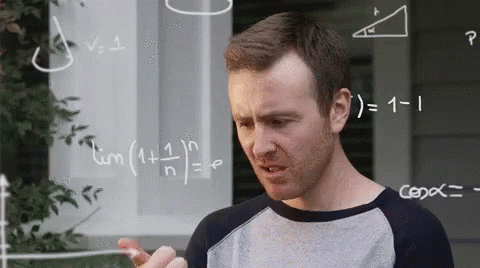We are already in June and this month, for the boys and girls who reach the age of majority this year, it means EVAU (or EBAU depending on the Autonomous Community), the exam formerly known as Selectividad. Students who pass it will be able to choose the university degree to which they dedicate the next few years and many of them (and some of them) will choose a degree in Computer Science . Why do they choose this career? What do you hope to find? What are they really going to find? How to manage the possible differences between your expectations and reality? In the next few lines we will try to answer these and other questions. Things are coming.
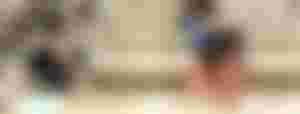
Computer science, why?

The one who subscribes this is a Computer Engineer. It was the end of the 90s and I wanted to be a journalist, mainly to do sports radio, to be the new Supergarcía or De la Morena, but at the university in my city, Journalism was not taught and Computer Science crossed my path. I loved messing around with computers and all kinds of machines, I had already made my first steps programming in Basic and everywhere it was said that Computer Science was a career with many professional opportunities . It was the perfect option and I jumped in the pool.
But what I'm telling you is almost the Pleistocene (computer science or the like was not even given in high school). The mobile I had when I entered the "uni" was an Alcatel One Touch that was used to call, send SMS and open the head of anyone who was stupid. With that I say it all. Why is today's chick getting into IT?
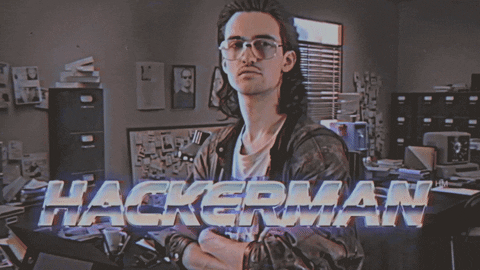
Alex de la Cruz is a Computer Engineering student at the Universidad Carlos III in Madrid and tells us that: "unfortunately the computer science classes at my institute were focused on office automation tasks instead of computer skills that could motivate to study a degree in computer science, personally I was very curious to know how a computer worked inside and had the feeling that I was going to like it . "
For her part, Clara Díaz studies Computer Science Engineering at the University of Jaén and for her "computer engineering was not my first option. I shuffled degrees that were more focused on health sciences. One day, and seeing that the first options were not They fit with me, a person very close to me and into computer science, told me that I gave the profile of computer engineer (because of my taste in mathematics, because of my spatial vision, because I have hobbies in this world ...) and because my account, I started looking for programming tutorials, documentation, etc. I started a C course where the basics of programming were explained, and I was fascinated by this world
Expectations Vs. Reality

When a few lines above it indicated that I threw myself into the pool when I got into Computer Science, it is that I threw myself into the pool. In a metaphorical way, but that's the way it was: I didn't know anyone who had done or was doing the Computer Science degree, nor did I know how to look for someone, I did n't even know the names of the subjects when I pre-registered . Then, when filling out the registration I came across such shocking names as "Numerical Analysis and Methods", "Algebra", "Physical Fundamentals of Computer Science" or "Statistics", the shirt did not reach my body. And all core (or basic subjects that are said now). I wanted to be a movie hacker and I was facing a freshman year with almost 70% of the math and surrounding credits
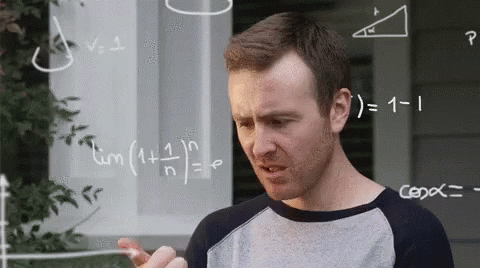
That was a long time ago, even before the Bologna Plan, but the first courses of Computer Engineering have not changed too much seeing the study plans of universities such as Carlos III or Jaume I of Castellón. However, now there are many more possibilities to get information about the careers , whether about study plans, facilities, teachers, professional opportunities, experiences of former students ...
Clara Díaz indicates that "when I decided to enter, I tried to find out as much as possible by asking former students or looking at information about the degree on the university's own website. I made myself high expectations: the subjects interested me a lot (with some specific exceptions). I found out that the University of Jaén had (and has) a good reputation in this particular degree, which I remember surprised me, being such a modest city Jaén. They told me about excellent teachers and some more mediocre ones, but in general, former students They assured that they enjoyed the race. In my case, knowing that there was so much professional career also motivated me a lot. In short, I had high and demanding expectations
But were these high and demanding expectations met? She herself answers that "In most subjects, yes, and they have even been passed. Although there are subjects that the subject interested you a lot, but a teacher who either does not explain too much or simply does not quite fit their teaching methods. Teaching can demotivate you on this topic to a great extent. Those are usually the subjects that people fear the most (apart from mathematics). I have noticed that all young "recently" graduated teachers have a lot of desire and enthusiasm, which they transmit to you and it motivates you . "
(BEFORE ENTERING THE DEGREE) I EXPECTED THE TYPICAL: LEARNING TO PROGRAM, HOW A COMPUTER WORKS AT A LOW LEVEL, CONCEPTS OF ARTIFICIAL INTELLIGENCE AND CYBERSECURITY ...
For his part, Alex de la Cruz assures us the following: "It is true that due to my lack of knowledge in the matter, I expected the typical thing, to learn to program, how a computer works at a low level, concepts of artificial intelligence and cybersecurity, of which Basic notions are imparted to everyone. But perhaps more important than expectations before entering are those that are created when one begins to discover which branch of computing they like the most, in my case this is cybersecurity " .
For the Carlos III student "at a basic level if I have acquired a horizontal knowledge, enough to know what I liked the most, I think, in addition to a deep low-level study of computers and operating systems. However, I have lacked a real offer of optional subjects to have been able to learn more in those areas that are of interest to me instead of compulsory subjects whose sole purpose is to waste too much time on the student
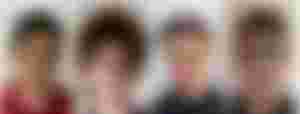
They are 17 years old or younger, they are the winners of the Spanish Computer Olympiad, and that is how they see the future of programming
But let's cross over to the other side of the mirror and see the opinions of the faculty. Macarena Espinilla is a PhD in Computer Science and professor of the Department of Computer Science at the University of Jaén and she tells us about the most important things a future Computer Engineering student should know :"Computer Science Engineering is a university degree of creativity, of learning to solve real problems in which you start from some notions and some bases in order to build customized solutions. In a very informal way you could say that you are going to have You have to face “exams” that even having all the notes, previous exams solved and the Google search next to you will be able to solve if you have not developed the ability to analyze the problem and design a solution. It may be daunting, but it is wonderful, because a Once that capacity is developed, a new world appears. I think that those of us who have a Computer Engineering degree have the memory of when that capacity was developed and of which we are very satisfied with the hard work we did . "
For Macarena, from her experience as a former student and teacher"Both before and now, I think there are two key issues where students are not informed. On the one hand, the importance of subjects such as mathematics or physics during high school, since they play a key role in engineering. Maybe success or Failure in the first year of the degree lies in how solid the base in these subjects is with which one reaches the university. Thus, those who want to study Computer Engineering should make an effort not only to pass the examination of those subjects in high school. , but to acquire the greatest possible knowledge and depth.On the other hand, there is still a lack of truthful information that refutes the stereotypes, beliefs and myths that revolve around the people who study this degree.When a person attends the first year of Computer Engineering, he realizes the reality of the student's profile, which is very far from the vision that part of society has ".
COMPUTER ENGINEERING ALSO REQUIRES "SOFTSKILLS" THAT MANY TIMES THEY FORGET TO PROMOTE: EMPATHY, TEAMWORK SKILLS, ABILITY TO SELF-TRAIN THROUGHOUT THEIR LIVES, ABILITY TO ADAPT, LANGUAGES, INTEREST IN TRAVELING AND MOVING ...
For her part, María José Escalona , professor in Computer Languages and Systems at the University of Seville, reminds us of the following: "Almost all the students who enter know that they have to know about technology but none are informed that Engineering Computing also requires softskills that they often forget to promote: empathy, the ability to work in a team, the ability to self-train throughout their lives, the ability to adapt, languages, interest in traveling and moving ... " .
Could it be better to communicate what Computer Engineering is and what the student will find in the degree? For María José Escalona "on a technological level perhaps yes. Now there are concepts that are on the street but again to say that stereotypes hurt. A computer engineer is not someone glued to a computer, he is an engineer and as such should learn to solve problems. To solve problems you have to understand them and for that, you have to work on aspects that go beyond technology. A computer engineer must empathize and adapt to his environment. One day you can work with architects, then with archaeologists and tomorrow with doctors. The technology may be the same but the environment is different and that, it seems that it is easy but it is not " .
For her part, Macarena Espinilla believes that "a joint communication should be carried out from secondary education and vocational training centers, from universities, as well as from the employing entities where a comprehensive vision such as the training program of the degree is made visible, professional opportunities, synergies with other degrees or masters, etc
To quit or not to quit? That is the question

With a lot of effort I managed to overcome that first year of the race that looked like an alpine colossus of the Tour de France at first glance (dragging the odd subject until the end of the race, I am not going to deceive you). Many of my colleagues could not say the same: the crowded classrooms of the first days were emptying week by week in an image little less than dantesque. Then the thing was more or less shot until I managed to qualify and immediately begin an already long professional career in the world of programming.
THE DROPOUT RATE IN THE FIRST YEAR OF THE COMPUTER ENGINEERING DEGREE IS A VERY HIGH 29.5%, AT THE HEAD OF ALL UNIVERSITY SECTORS
It does not seem that things have changed much in these 20 years: in this other Xataka article we see that the drop-out rate in IT was 42.9% in 2019 . And yes, some will leave because they enter the job market quickly or are directly covered like Mark Zuckerberg, but make no mistake, it is not usual.
For example, according to data from the VASS Foundation collected by El Confidencial , the dropout rate in the first year of the Computer Engineering degree is a very high 29.5% . Both data place Computer Science at the forefront of university dropouts. And it would not be surprising if, with the COVID pandemic that we have suffered and that has made things so difficult for everyone, these figures have been even greater in the last two years.
We transferred this information to the students interviewed for this article and we wanted to know if they, survivors of that first year, had ever considered throwing in the towel . Clara, the student from the University of Jaén tells us that "personally I have never considered dropping out of the degree. Many times it becomes difficult or very tiring due to the number of projects and practices, but I really love computing and it is a what I want to dedicate myself to. However, I do know people who have considered it, or even many have left it (most of these cases in the first year of the race) " .
In a similar way, Alex, the student at the Carlos III University of Madrid, expresses himself: "Give up no, because luckily I have been passionate about it since I started, but there have been many frustrations for having so much constant workload and not having time to learn by my account and sign up for activities organized by the multiple student associations

"He who does not know mathematics is going to have a serious problem": the importance of mathematical skills in the world of work
On the other hand, we asked the teachers consulted to give us a series of keys to try to reverse this well-established dynamic of abandonment . Macarena Espinilla, from the University of Jaén, tells us that"20 years ago I began to study the degree in Computer Engineering and I believe that the factor that determines this fact, before and now, is the academic program of the first year where there are plenty of subjects from the branch of mathematics, physics or statistics. These subjects settle the bases that should be known by future engineers and, in addition, I think it convenient that they be placed in the first year, since normally the student comes through the access route of high school and still has that subject “fresh”. the dynamics of the dropout rate, the importance of these subjects should be made visible to study a degree not only in Computer Engineering, but also in many other degrees. In the case of Computer Engineering,The subjects related to statistics and mathematics are subsequently closely related to subjects related to artificial intelligence, computer security, data mining, etc. ".
ACCESS TO THE COMPUTER ENGINEERING DEGREE DOES NOT ONLY COME FROM HIGH SCHOOL, BUT ALSO FROM VOCATIONAL TRAINING CYCLES, WITH STUDENTS WITH THIS PROFILE LACKING A GOOD FOUNDATION IN MATHEMATICS, PHYSICS OR STATISTICS
It also indicates that "in this regard, a critical issue that we must not forget is that access to the degree in Computer Engineering does not only come from high school, but also from vocational training cycles, the student body with this profile lacking a good based on the subjects cited above. For this reason, these students have to make an even greater effort in the first year if they want to pass it . "
Meanwhile for María José Escalona, professor at the University of Seville, "first-year subjects, such as mathematics, physics, etc., are usually always a problem but also others such as programming. Students often arrive thinking that They are going to make web pages and build large systems from day one but as I indicated before they must be trained to be in constant evolution and that requires that they have a solid foundation independent of the technology that is carried at all times. Many do not understand that and it is a important shock for them. We must also see that many, oddly enough, find work very soon . "
Isn't it a race for girls? Well, it is time that it begins to be

Donna and Cameron, the female protas of the "computer science" series par excellence: 'Halt and Catch Fire''
We talk about expectations vs. reality and here the prejudice would enter that Computer Science, like other technical and engineering careers, is eminently masculine terrain but in an even more pronounced way if possible: a career for aspiring Steve Jobs nerds and geeks where women are not welcome. A perception of hostile territory, without references , which unfortunately does not seem to have improved much over time.
We asked Alex and Clara for a rough estimate of the percentage of boys and girls in their respective classes : "I could say 95% boys, 5% girls. It depends on the number of students enrolled in each subject, but we were always less than 10 women ( in some classes we were 3, in others 7, it depended a bit on the subject or class shift) in classes of around 100, 80 people. It was striking, that several teachers commented that they began to see more girls in class, even though there were few " , says Clara Díaz, from the University of Jaén.
"Diversity is undoubtedly one of the problems of the sector or at least of the degree, in my class only 17% of the students are women, there is a barrier to entry, since computing is usually associated with" geeks ", when this is not the case by any means, the situation has improved in the last few years, but it is clear that the percentage still has to go up a lot ", Alex de la Cruz, from the Carlos III University explains. According to data from 2018, 88% of Computer Engineering students are men . Cotton does not cheat.
ONE OF THE KEYS IS TO MAKE VISIBLE CLOSE FEMALE REFERENCES, PEOPLE OF FLESH AND BLOOD FROM THIS BRANCH WHO BREAK STEREOTYPES AND WHO ARE VALUED FOR WHO THEY ARE AND WHAT THEY DO.
María José Escalona analyzes this situation: "I am one of those who think that stereotypes hurt us a lot. This is the whiting that bites its tail, the information that reaches boys and girls is that engineering is complicated, that boys are better at it, we are geeks ... they don't have references of women. Think a bit, Bill Gates, Steve Jobs ... all men. The women who arrive are of the Liz Salander type. The successful mother who lives at ease and She is never happy. She is never an engineer. Neither on TV, nor on the networks ... not even at home. Even when there are more mother engineers, let's start giving visibility but I think the message we give to our children needs to be changed a lot. " .
Curiously, María José was the only girl in her class when she studied Computer Science at the University of Seville. He tells us about that experience: "In the promotion there were some more but not in my class. For me it was normal. It was curious in classes like physics. A full class and I was the only one. One day, in third year, they told me: You are Miss Informatics and Statistics (at that time we were united) and I was flabbergasted because I am not particularly pretty. I asked how why I had not introduced myself and they told me that since I was the only one… I never felt uncomfortable working with men. The truth is I have worked very comfortably and I feel more comfortable in male environments and although I have some unpleasant stories, most of them have been good. I do know that others cannot say the same . "
For her part, we ask Macarena Espinilla to give us some keys to try to improve this situation and bring Computer Engineering closer to women:"Unfortunately in the Computer Engineering career the presence of women is less than that of men. This trend has been maintained over the years and we must eliminate it, since it generates a gender gap in a degree with enormous professional opportunities. One of the keys is focused on making visible close female references, flesh and blood people of this branch who break stereotypes and who are valued for who they are and what they do. Although many efforts are being made, these limiting beliefs are deeply rooted and they must be treated in an integral way in society, since each person and entity plays an important role
an integral way in society, since each person and entity plays an important role . "
I hope that you, future student of Computer Engineering, once you have passed the EBAU-EVAU-como-se-llama (celebrate it as it deserves, of course it does), this article has helped you to get a clearer idea of what What are you going to find in September when you set foot for the first time in your new faculty ... if the Coronavirus allows it, of course. Some really exciting years are opening up before you, take advantage of them.
My name is:
Silvio Martinez
Thanks for read my article
